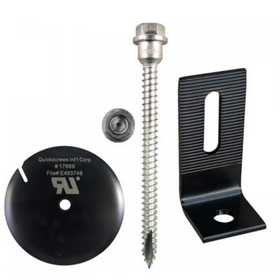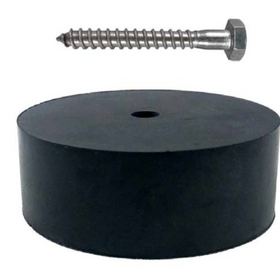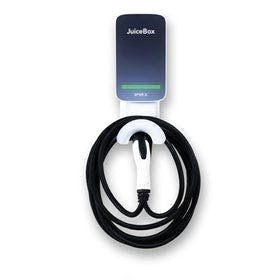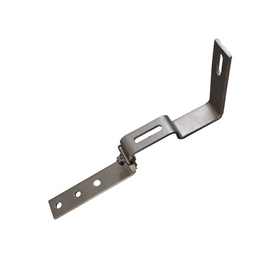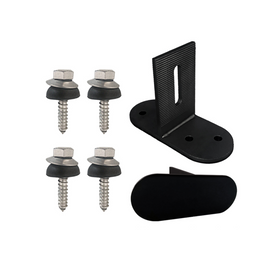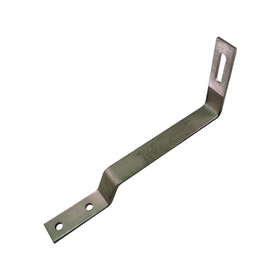
AC/DC Electricity: Might We Have Gotten It All Wrong?
Last Updated: Apr 7, 2025Here is a fun fact. Did you know that the famous rock band AC/DC came up with the idea for the band's name after one of the band members' sisters saw the "AC/DC" initials on her mother's sewing machine? The band felt that this name symbolized the raw energy and the power-driven performances their rock compilations evoked. And for the past couple of decades, most people associate the initials "AC/DC" with a 70's and 80's rock band, rather than with competing types of electricity transmission as referenced on that sewing machine motor.
However, solar power's growth has reintroduced many homeowners to the idea of DC power. Below, we offer a quick explanation of AC and DC power's main differences and then look at some of the potential benefits that shifting to DC power might make in the future.
Table of Contents
- What Is the History of AC and DC Power in Homes?
- What is AC Power?
- What is DC Power?
- Where Do We Use AC Current and DC Current?
- Is DC or AC Power Safer?
- Which Type of Current is Most Efficient?
- Why Would Switching From AC To DC In A House Be Beneficial?
- Does AC/DC Matter If You're On-Grid Or Off-Grid?
- Is It Possible That The AC/DC Switch Could Happen On A Large Scale?

What Is the History of AC and DC Power in Homes?
When we turn on our lights, the energy comes from some distant power plant for the vast majority of us. Unfortunately, many of these burn coal or natural gas to light, heat, cool, and power our homes. What we probably never think about, however, is the type of electrical current that is used by our lights, HVAC equipment, and other appliances.
About 125 years ago, though electricity had been invented, it still wasn't widespread in most places worldwide. Figuring how to effectively and efficiently distribute energy to hundreds of thousands of individual homes and businesses was a significant undertaking. In the 1880s and 1890s, competing ideas and visions for power transmission systems led to a "war of the currents."
Thomas Edison, the famous inventor of the light bulb, created a company pushing for DC transmission (direct current) transmission systems to power incandescent light bulbs in individual homes. His main competitor at the time, George Westinghouse, believed that AC (alternating current) systems could be a better option. At the time, however, AC transmission systems only could handle high voltage currents. The invention of a transformer allowed for AC to be "stepped down" to function for interior lighting.
After years of court cases, accusations of patent infringements, and general disagreement, the two companies eventually merged, paving the way for AC transmission systems to become the norm. Alternating current (AC) electricity transmission has generally proven advantageous for massive economies of scale that rely on large, centralized power plants. Because these power plants are often located far from the homes, businesses, and industries where it is used, AC is the best way to facilitate long-distance transmission.
After quickly being phased out of use in the 20th century, the last DC transmission system in New York City was eventually shut down and converted to AC power in 2007. However, many electricians, renewable energy advocates, and others concerned about transitioning to low carbon or net-zero energy grid believe switching back to a DC grid could allow for several sustainability advantages.

What is AC Power?
If all of this talk about different types of currents is confusing, let's start with some basic definitions. AC power stands for alternating current. Today, it is the most widespread and standard electricity format that comes out of outlets and the switches we use in our homes and businesses. AC electricity travels in a waveform. This characteristic allows this type of electricity to travel long distances without losing a large amount of power or potency.
What is DC Power?
DC power stands for direct current. This type of electrical current uses electrons that move in a straight line instead of AC power's wave-like movement. The linear motion of DC power has the advantage of offering a consistent power flow in terms of voltage delivered, which is required by many types of electronic devices.

Where Do We Use AC Current and DC Current?
After the "War of the Currents," AC power became the most widespread form of electricity worldwide. Today, alternating current continues to dominate the electricity on the market. Unless you live in an RV, houseboat, or off-grid cabin, the power outlets and other electrical fixtures in the walls and ceiling of your home bring AC power into your household.
However, many of the most common electrical devices and appliances used in our homes use DC. Direct current delivers a consistent voltage. Almost all electronics require this power type to avoid being damaged by the surges common with AC power. Electronic appliances generally either have a DC power source in their batteries or need a rectifier to convert the AC from your outlet to the DC used by the device. If this sounds confusing, look at the power cord for your laptop computer. That black square transforms the AC from your outlet into DC power for your computer. Most electronic devices used in homes today have built-in rectifiers built and transformers to switch to DC and to raise or lower the voltage to the appropriate level.

Is DC or AC Power Safer?
Both AC and DC currents do have the ability to cause extreme damage to the human body in the case of electrocution. During the "war of the currents," proponents of DC currents pointed to the increase in deaths caused by AC lines that were not effectively lowering the voltage needed for household use. Today, most safety issues with AC currents have been ironed out. But, most experts agree that AC power is more dangerous than DC power. One website estimates that AC currents and voltages are anywhere between three to five times more dangerous than DC currents with the same voltage level.
Which Type of Current is Most Efficient?
The main drawback of DC in years past was the challenge of transporting this type of current over long distances. However, when the current is delivered locally, DC is generally considered a much more energy-efficient source of electricity. Consider the following:
- Motors and appliances that use DC power are proven to have higher efficiency and power to size features.
- LED lighting, which is DC-based, is at least 75 to 90 percent more efficient than AC-based incandescent lighting options.
- Recent developments in DC converter technologies are allowing more efficient transportation of DC over longer distances.

Why Would Switching From AC To DC In A House Be Beneficial?
The Case For Solar
A 2019 Pew Research Poll found that 6 percent of American households had already installed solar panels on their home. The Department of Energy's Sunshot 2030 Visionary Report, however, hopes to significantly lower the costs by 2030 to enable substantially greater PV adoption. Specifically, the Sunshot 2030 goal is to achieve three ¢/kWh for utility-scale solar systems, four ¢/kWh for commercial solar systems, and five ¢/kWh for residential solar systems. As solar PV systems become increasingly cost-competitive, another case can be made for a widespread transition to DC.
A Brief Explanation of Solar Energy Collection
Energy from the sun shines on the solar panel, creating a flow of electrical energy. This flow frees up electrons within the panel, thus creating direct current (DC) electricity. Unless an off-grid homeowner makes an effort to purchase all DC appliances and wire exclusively for direct current, your home solar array will require an inverter. Despite being relatively efficient, inverters "lose" electricity in the process of transforming the DC from the panel to AC for the home.
Even with a 99 percent efficiency rating, millions of inverters converting solar energy into AC for homes would result in an enormous waste of renewable energy.
Does AC/DC Matter If You're On-Grid Or Off-Grid?
As it stands today, if you are planning on installing a grid-tied solar PV system, you will most likely need an inverter to convert that electricity to AC power. Suppose you are planning on going completely off-grid. In that case, it is much more feasible to convert to a fully DC home autonomously. The DC provided by your solar panels and stored by your batteries will be able to charge electronics that already require DC currents directly. These could include computers, phones, tablets, battery maintenance chargers, and other electronics.
You can also find off-grid LED lighting options for sale online. Most RV or houseboat stores will carry various DC appliances such as refrigerators, heaters, AC units, and others that run on DC power. If your home is already wired for AC power, switching to DC power could be a hassle as most electricians will only know how to wire a house for AC power. But what about the future?

Is It Possible That The AC/DC Switch Could Happen On A Large Scale?
As it turns out, the "war of the currents" might not be over quite yet. AC was widely adopted over a century ago. This was mostly because the energy system was focused on big, centralized power plants that needed a reliable current to distribute energy hundreds of miles to different, individual consumers and households. This system is tied into the massive energy plants that burn coal, natural gas, and other fossil fuels. Besides the obvious issue with greenhouse gas emissions from centralized, fossil-fuel burning energy plants, this energy production model and distribution model is inefficient. Some estimates find that up to 10 percent of the electricity transmitted by power plants is lost in transit.

As we transition into a new energy age focused on smaller, decentralized, renewable energy systems, DC power might be set for a comeback. It's improved efficiency and natural fit with decentralized renewable energy systems, such as wind and solar, might mean that Edison could win the final battle after all.
Tobias Roberts
Tobias runs an agroecology farm and a natural building collective in the mountains of El Salvador. He specializes in earthen construction methods and uses permaculture design methods to integrate structures into the sustainability of the landscape.


